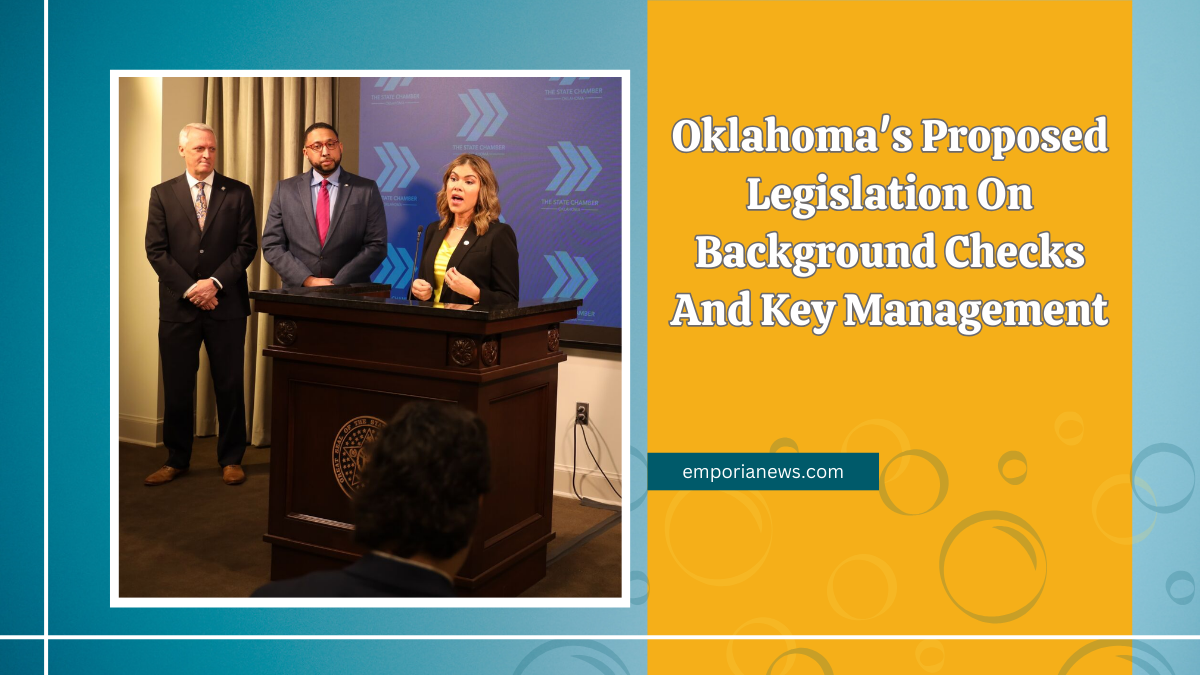In a significant move to bolster tenant safety, the Oklahoma legislature is advancing House Bill 1945 (HB 1945), introduced by Representative Michelle McCane of Tulsa.
This proposed legislation aims to enhance security measures for renters by mandating comprehensive background checks for employees and implementing stringent key management protocols in public lodging establishments.
Key Provisions of HB 1945
HB 1945 outlines specific requirements for landlords, property owners, and operators of public lodging facilities, including apartments and hotels with five or more rental units. The primary provisions include:
- Mandatory Employee Background Checks: All employees must undergo thorough background screenings as a condition of employment.
- Key Issuance and Return Log: Establishments are required to maintain detailed logs tracking the issuance and return of keys for all units.
These measures are designed to ensure that individuals with access to rental units have been vetted appropriately and that key distribution is meticulously monitored.
Legislative Progress and Support
On February 20, 2025, HB 1945 received unanimous approval from the House Civil Judiciary Committee, reflecting bipartisan support for enhanced tenant protections.
Representative McCane emphasized the importance of the bill, stating, “Renters and tenants deserve to feel safe in their own home.” She highlighted that unregulated access to rental properties increases potential risks, and this legislation aims to mitigate such dangers.
Implications for Landlords and Property Managers
The enactment of HB 1945 would impose new responsibilities on landlords and property managers, necessitating:
- Implementation of Background Screening Processes: Developing or outsourcing comprehensive background checks for all current and prospective employees.
- Establishment of Key Management Systems: Creating and maintaining accurate logs for key issuance and return to ensure accountability and prevent unauthorized access.
These requirements aim to foster a safer environment for tenants by ensuring that only trustworthy personnel have access to residential units and that key distribution is closely monitored.
Comparative Analysis with Existing Programs
Oklahoma’s initiative aligns with broader national efforts to enhance safety in residential settings. For instance, the Oklahoma National Background Check Program mandates fingerprint-based background checks for employees in long-term care facilities, aiming to protect vulnerable populations.
Similarly, HB 1945 seeks to extend rigorous background screening to the housing sector, thereby enhancing tenant security.
Potential Challenges and Considerations
While the proposed legislation has garnered support, its implementation may present challenges, including:
- Resource Allocation: Landlords and property managers may need to allocate additional resources to conduct thorough background checks and maintain detailed key logs.
- Privacy Concerns: Ensuring that background checks comply with privacy laws and that sensitive information is handled appropriately.
- Operational Adjustments: Establishing new protocols for key management and employee vetting may require operational changes and staff training.
Addressing these challenges will be crucial for the successful implementation of the bill’s provisions.
Conclusion
Table: Key Provisions and Implications of HB 1945
| Provision | Description | Implications for Landlords and Property Managers |
|---|---|---|
| Employee Background Checks | Mandatory screenings for all employees | Implement comprehensive vetting processes |
| Key Issuance and Return Log | Detailed tracking of all keys issued and returned | Establish and maintain accurate key management systems |
House Bill 1945 represents a proactive step toward enhancing renter safety in Oklahoma. By mandating employee background checks and stringent key management practices, the legislation aims to create a more secure living environment for tenants.
As the bill progresses through the legislative process, its potential impact on both tenants and property managers underscores the importance of comprehensive safety measures in the housing industry.
FAQs
What is the primary objective of House Bill 1945?
The bill aims to enhance tenant safety by requiring background checks for employees and implementing key management protocols in public lodging establishments.
Which establishments are affected by HB 1945?
The legislation applies to landlords, owners, and operators of public lodging facilities, including apartments and hotels with at least five rental units.
What are the key management requirements under the bill?
Establishments must maintain detailed logs tracking the issuance and return of keys for all units to ensure accountability and prevent unauthorized access.




